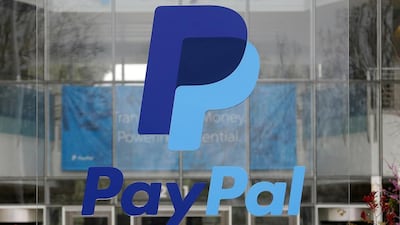Bitcoin surged 8 per cent during overnight trading in New York to break past $13,000 for the first time since 2019 after global online payment provider PayPal said on Wednesday it will allow customers to use cryptocurrencies.
The digital coin increased another 2 per cent to $13,119 during early trading in Asia on Thursday. Other digital coins also gained on PayPal's news, including litecoin, which rose more than 13 per cent, and Bitcoin Cash, up 9 per cent.
"The upward momentum in the Bitcoin price wasn't anything more than a pump...Bitcoin is a kind of beast that can move more than $4,000 a day, and this is what we were expecting," Naeem Aslam, chief market analyst at Avatrade, said.
PayPal's US users will be able to use the new digital coin service over the coming weeks, the US company said in a statement.
"Yes, PayPal expecting Bitcoin as a form of payment is the most important development, and it is the biggest news since the crypto king made an all-time high of $20,000. This was going to happen – PayPal accepting cryptos," Mr Aslam said.
"However, if one thinks that this will change regulators' stance very soon, you may be setting yourself up for a surprise. These things do not move that fast; regulators will not allow cryptos to replace fiat currencies."
PayPal users will initially be able to buy, sell and hold Bitcoin and other cryptocurrencies such as ethereum, Bitcoin cash and litecoin. The company has obtained a conditional cryptocurrency licence from the New York State Department of Financial Services and partnered with New York-based FinTech start-up Paxos to deliver the service.
The payments giant intends to bring the function to its Venmo platform and plans to introduce it to certain international markets in the first half of next year.
PayPal customers in markets outside the US will be able to use cryptocurrencies to shop from 26 million merchants on its network from next year, the company said. Cryptocurrency payments on the platform will be settled using fiat currencies, such as the US dollar, meaning merchants will not receive payments in virtual coins.
“The shift to digital forms of currencies is inevitable,” Dan Schulman, PayPal's president and chief executive, said. “We are eager to work with central banks and regulators around the world to offer our support, and to meaningfully contribute to shaping the role that digital currencies will play in the future of global finance and commerce.”
The coronavirus pandemic has accelerated the shift away from cash towards digital payments. When Covid-19 struck, Bitcoin asserted itself as a safe haven for panicking investors. With the US Federal Reserve and other central bankers launching stimulus programmes and devaluing paper currencies, hard assets such as cryptocurrencies and gold with limited supply have appreciated in value.
PayPal, based in San Jose, California, hopes the service will encourage global use of virtual coins and prepare its network for new digital currencies that may be developed by central banks and corporations.
Many central banks around the world have expressed their intention to develop digital versions of their currencies in the coming years.
Financial technology companies have dabbled in cryptocurrency over recent years. Mobile payments provider Square first allowed some customers to buy and sell Bitcoin through its app about three years ago. Stock trading app firm Robinhood also allows users to buy and sell cryptocurrencies. But PayPal’s move could provide a boost to cryptocurrency use due to its vast reach.
The Silicon Valley payments giant has 346 million active accounts around the world and processed $222 billion in payments in the second quarter.
PayPal was also one of the initial founding members of Libra association, a cryptocurrency project formed by Facebook in 2019. However, it was one of the first companies that dropped out after regulatory pressure mounted on the venture.
But interest in cryptocurrencies is resurging despite the reluctance of mainstream lenders to engage with it.
This week, Bitcoin yet again tested the $12,000 mark for the second time this year. However, prices remain far below the levels seen during the trading frenzy in 2017 when Bitcoin's value touched record highs.


